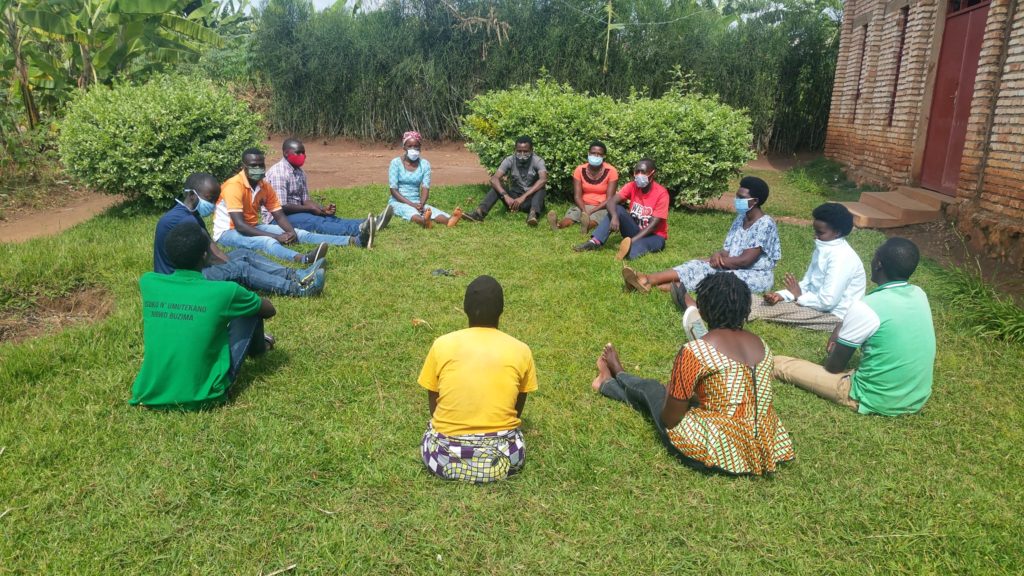Most of us have a friend or relative who treats us like a free counselling service: we do our best to be attentive when they want to talk about their problems. Yet, in some cases, it isn’t a two way street. Perhaps they aren’t keen on listening when we want to vent, or they take a perfunctory interest. We put down the phone thinking, “Did he or she even hear what I said?”
If this situation sounds familiar, then imagine what it is like to be one of our peer support counsellors, shouldering the burdens of hundreds of genocide survivors in their community, all day and every day. It’s not that our counsellors are complaining, because they tell us they love their work, seeing the positive impact they have on people’s lives all the time. But taking on the troubles of others, patiently listening and giving support, can be exhausting and stressful. Many people reading this will understand that.

Supporting our Counsellors
For this reason, our Rwandan partner, the Survivors’ Fund, recently held a day-long clinical supervision session. Twenty-four counsellors from across the country were given the chance to share experiences, and to be honest about their emotions rather than maintaining a professional and positive facade for the sake of their clients.
Their counselling work has become that much more difficult during the Covid-19 pandemic in Rwanda. The government was quicker to impose a lockdown than many European or North American countries were, and as a result, the rate of infection and mortality is mercifully low.
Yet, there have been other costs: people have felt isolated and unable to enjoy the community solidarity that still plays an important role in Rwandan society. Some people have struggled to adapt to telephone counseling sessions, and counsellors may also find it hard to gauge people’s feelings without eye contact. Vulnerable survivors might also lack a mobile phone or a reliable service, meaning they feel especially alone.
At the clinical supervision session, the counsellors talked about how hard it is to support suicidal genocide survivors struggling to find a reason to continue; or giving hope to clients whose husbands or wives fail to understand the permanent psychological scars that surviving a genocide leaves, even twenty six years later.
During the day-long session, the counsellors were encouraged to make time to nurture themselves, to practice relaxation exercises, and to take a mental step back from their relentless and taxing duties. The session succeeded in its aim, “ending on a positive note,” as the organizers told us.
An Appeal for Your Support
This blog is a particular appeal to our supporters to help us raise a remaining £3,000 for the annual Big Give campaign to support our project in Rwanda. As part of our application, we need our key supporters to make promises of funding, called ‘Pledges’, which will be used as match funds to double online donations made to our charity during the campaign. Your commitment of funding might also help us to secure additional match funds via a Champion (sourced by the Big Give). We are aiming to raise a total of £5,000 in pledges to take part in the Christmas Challenge (we have currently secured £2,000). Would you consider making a pledge of £1,000, £2,000 or £3,000 to help us reach our target? (It is important to note that the pledge will need to be paid to Network for Africa between 9th December 2020 – 15th January 2021). If you would be willing to make a pledge to us, please click on the link and complete the online form (by the deadline of 5pm, Friday 28th August), and if you have any questions, please do not hesitate to contact us by email (information@network4africa.org). Thank you for your support.
I’D LIKE TO PLEDGE TO THE BIG GIVE